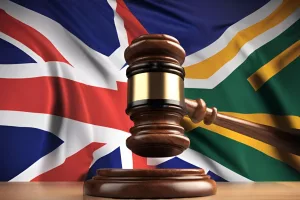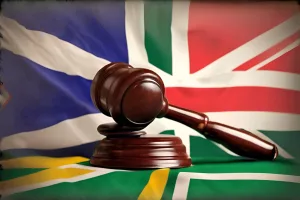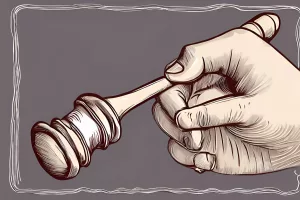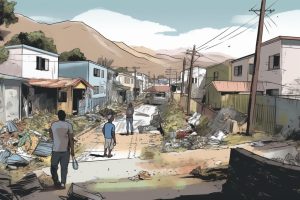The trial of Nafiz Modack in the Western Cape High Court is exposing the seedy underbelly of Cape Town’s towing industry. Testimonies from tow truck operators reveal a web of crime and intrigue, linking the industry with the city’s gang activities and nightclub security feuds. The trial includes serious crimes such as murder, including the murder of Detective Charl Kinnear and tow truck driver Richard Joseph. The courthouse stands as a somber reminder of the intersection of organized crime and everyday businesses in Cape Town.
A Significant Milestone: Western Cape High Court Greenlights New Road Construction for Masiphumelele
The Western Cape High Court has approved the construction of a new road connecting Masiphumelele to the wider Noordhoek area, which will provide better access to essential amenities and emergency services, reduce traffic volumes, and counteract flooding risks. The road project, which had been delayed for almost eight years, is expected to bring relief to the community and enhance mobility and selfdetermination. While there were environmental concerns, the City has committed to mitigating any harmful impacts on wetlands and leopard toads, and the project is seen as a beacon of hope for a brighter future.
The Western Cape High Court is preparing for two upcoming trials involving alleged underworld adversaries Nafiz Modack, Mark Lifman, and Jerome ‘Donkie’ Booysen. These trials will unveil the convoluted ties and obscure alliances within Cape Town’s criminal underworld and the involvement of a compromised law enforcement system. The trials will disclose the dark side of a city renowned for its stunning landscapes and picturesque beaches, exposing the harsh realities of the city’s criminal underworld.
The Western Cape High Court has rejected Judge John Hlophe’s request to halt the National Assembly’s proceedings for his dismissal, marking a critical moment in the feud between legislative power and judicial autonomy in South Africa. Hlophe had argued that the Assembly’s proceedings went against the principle of separation of powers and did not meet constitutional standards. However, the court upheld the Assembly’s responsibility to execute its duties and the importance of avoiding interference in constitutional processes. The ruling serves as a reminder of democracy’s ongoing nature and the need for active participation from all sectors of society.
The Western Cape High Court has upheld Parliament’s right to selfregulate and dismissed a lawsuit filed by the Economic Freedom Fighters (EFF) seeking to halt the application of certain parliamentary procedures. The court ruled that there was no evidence of bias or targeting against the EFF and that the revised rules would apply uniformly to all political parties. The decision reinforces the need for all state entities, including political parties, to respect the separation of powers doctrine and adhere to rules and regulations in preserving democratic principles.
The trial for the assassination of Lieutenant Colonel Charl Kinnear began on Monday in the Western Cape Division of the High Court. 14 individuals, including reputed organized crime mastermind Nafiz Modack, are facing charges related to the killing. The outcome of the trial will have larger implications for Cape Town’s ongoing struggle against organized crime. The trial signifies a reckoning with the forces that infringe on the city’s heart, and its outcome will send a clear message to those who dare cross the thin blue line.
The High Court in South Africa rejected the Economic Freedom Fighters’ (EFF) request to put disciplinary measures against six of their members on hold, affirming the importance of decorum and the rule of law in parliamentary procedures. The court’s decision highlights the significance of maintaining order in political institutions and the consequences of disregarding parliamentary regulations and customs. The verdict also serves as a testament to the sturdiness of the country’s judicial system and its dedication to upholding democratic principles.
The Western Cape High Court upheld the suspension of Ms. Dipuo Peters from her parliamentary duties after she violated the Code of Ethical Conduct during her time as Minister of Transport. Ms. Peters was accused of negligence in her responsibilities, including failing to appoint a Group CEO for the Passenger Rail Agency of South Africa and using PRASA buses for ANC events without ensuring compensation. The court’s decision serves as a warning to public servants that their actions are subject to scrutiny and repercussions if they breach ethical behavior. Parliament’s regulatory prerogatives were respected, and the case highlights the importance of adherence to the principles of accountability and freedom of speech in preserving the integrity of the South African Parliament.
Western Cape High Court Dismisses Santaco’s Application against City of Cape Town and WCG
The Western Cape High Court recently delivered a ruling that dismissed the South African National Taxi Council’s (Santaco) court application against the City of Cape Town and the Western Cape Government (WCG). As a result, the court granted the City’s request to make the terms of the agreement that ended the taxi strike an order of the court.
Recent events have brought to light the importance of responsible pet ownership and seeking legal action in cases of harm caused by pets. The case of Micayla Marshall, who was awarded nearly R100,000 in damages after struggling with PTSD for nine years due to a dog attack, highlights the potential emotional and physical harm inflicted by dogs.
The contentious issue of land restitution in South Africa continues to be challenging, particularly in cases such as District Six in Cape Town. This oncethriving community was forcefully evacuated by the apartheid government in the 1960s and 1970s, leaving the land vacant for decades.











